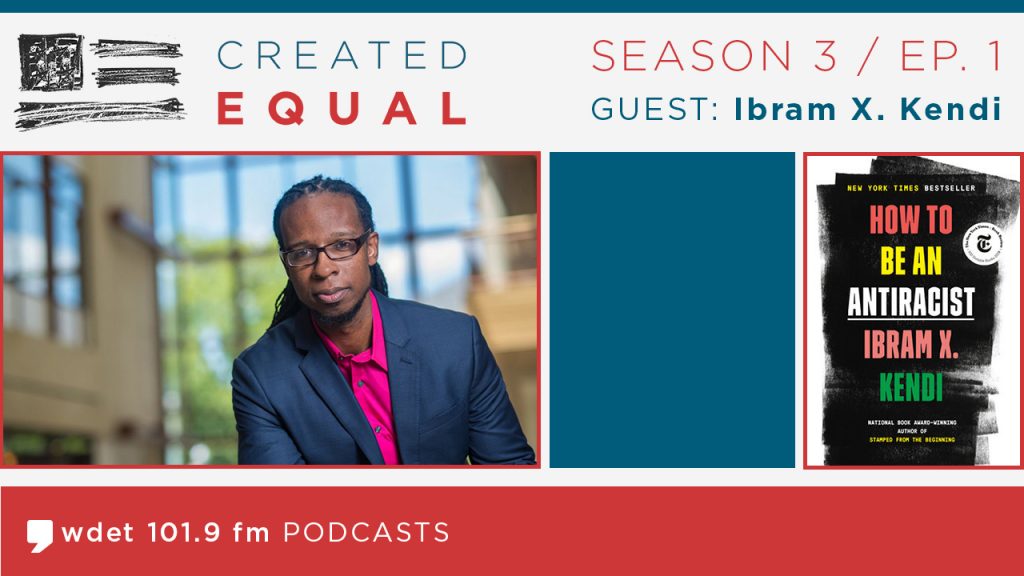Created Equal: Dr. Ibram X. Kendi Explains ‘Antiracism’
Dr. Ibram X. Kendi, author of “How To Be An Antiracist,” unpacks the difference between “antiracism” and “not being racist.”

Season Three of the podcast Created Equal explores “Writers on Race: From Ralph Ellison to Colson Whitehead,” and features some of the most important voices in literature as well as the national conversation on racial inequities.
The conversations were conducted on the radio program, Detroit Today, in the WDET studios on Wayne State University’s campus throughout the pandemic and civil unrest of 2020. Each episode consists of a conversation between Henderson and one writer exploring the role of their work in the conversation about race in America.
Subscribe to the Podcast

Episode 1 Guest: Ibram X. Kendi
Dr. Ibram X. Kendi is a historian and director of the Antiracist Research & Policy Center at American University. He is also the author of the national book award winning, “Stamped From The Beginning,” which takes a deep look into racism and racist ideas throughout American history by chronicling the lives of notable Americans from Thomas Jefferson to W.E.B. Dubois.
His 2019 book, “How To Be An Antiracist” turns the story inward and describes Dr. Kendi’s own journey of identifying his own internalized racist ideas and transformation to becoming antiracist. It resurfaced on the New York Times bestseller list, following the reckoning with racial injustices American society has been confronting throughout 2020.
Discussion Points:
How Dr. Kendi came to the conclusion that he needed to pursue making antiracism:
“I had been saying that there was something wrong with Black people, and I didn’t realize that was a problem. But when I heard someone else say it, and I felt and I recognized that what they were saying was wrong, it suddenly put up a mirror to what I was saying, until I realized what I was saying was wrong too.”
Differentiating between “antiracist” and “not being racist”:
“Typically, people say ‘I am not racist’ when someone charges them as being racist… What an antiracist would say when someone charges them with being racist is ‘Well here’s the definition of a racist idea, of a racist policy, of a racist. Let me apply that to what I just said or did. In fact what I did or did not was in indeed racist.'” But what historically has happened, I think, for many people is instead of assessing themselves, people reflexively deny their own racism.”
Deflection against being called a racist moves the conversation away from fighting back against racism:
“I think that’s why the term ‘not racist’ really traps us into passivity and into defensiveness. I think we should also recognize two things that are going on that I think people don’t necessarily realize… The first is people typically are led to believe that ‘racist’ is like a fixed category — it’s an identity, it’s a tattoo. So when they say they’re not racist, they’re saying ‘Don’t tattoo that r-word on my head for the rest of my life.’ And secondly, I said ‘r-word’ because in many ways, the term ‘racist’ has been conceived of as an attack or a racial slur.”
Created Equal Season 3 is supported by the Michigan School of Psychology

Trusted, accurate, up-to-date
WDET is here to keep you informed on essential information, news and resources related to COVID-19.
This is a stressful, insecure time for many. So it’s more important than ever for you, our listeners and readers, who are able to donate to keep supporting WDET’s mission. Please make a gift today.
